Two Israeli couples invent a new way to experience the iconic Israeli markets
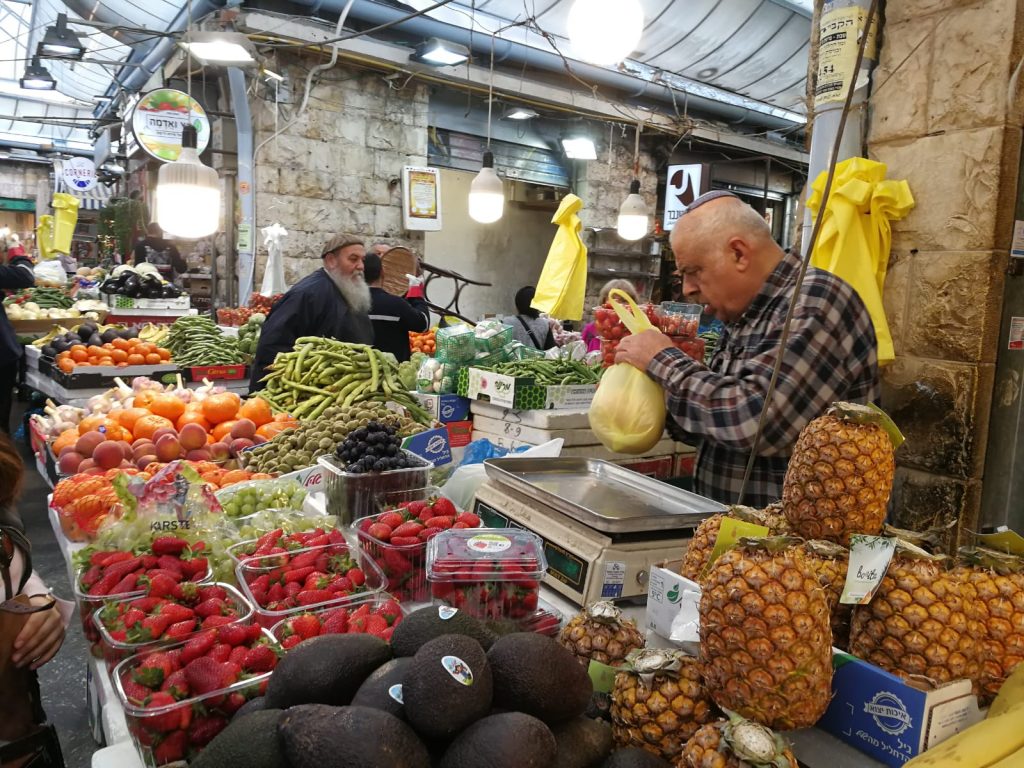
All photos by Zoheret Cohen
There is nothing more human than an open air market. In Hebrew, when we want to say that something happens often we say it happens every Monday and Thursday. Why not Sunday and Wednesday, you may ask? Because during morning prayers only Mondays and Thursdays of all weekdays is when we take out the Torah scroll and read from it. Why Monday and Thursday? Very likely, because these were the shuk days, the market days in ancient Judea. As such, they were days in which the whole family was out and about early in the morning. Not only the father, but the mother and the kids; all were going to the shuk to buy and to sell and to meet with other people in the community and people from far away too. Since after the destruction of the Second Temple sacrifice service was replaced by learning the Torah in synagogues, what better days could there be to get everyone in and get them to hear the weekly Torah passage?
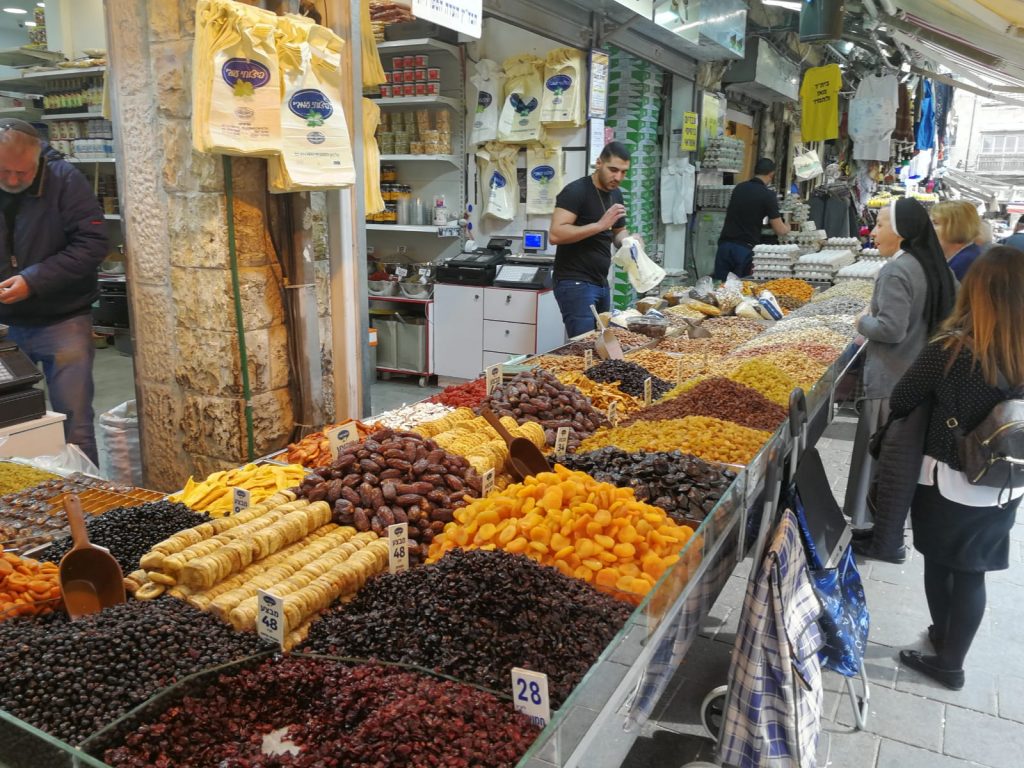
All over the Middle East and Europe the open air markets are still an institution. Some, like the one in Istanbul are vast, some are small and intimate, but they are all wonderful representations of the local culture and offer the best that the local area can produce. In Israel, however, there is a unique twist. Israeli culture is a wonderful four dimensional layer cake made up of layers upon layers of unique cultures that washed up on the shores of the Eastern Mediterranean since the dawn of history. Israeli shuks exist in space, but they add another dimension: time.
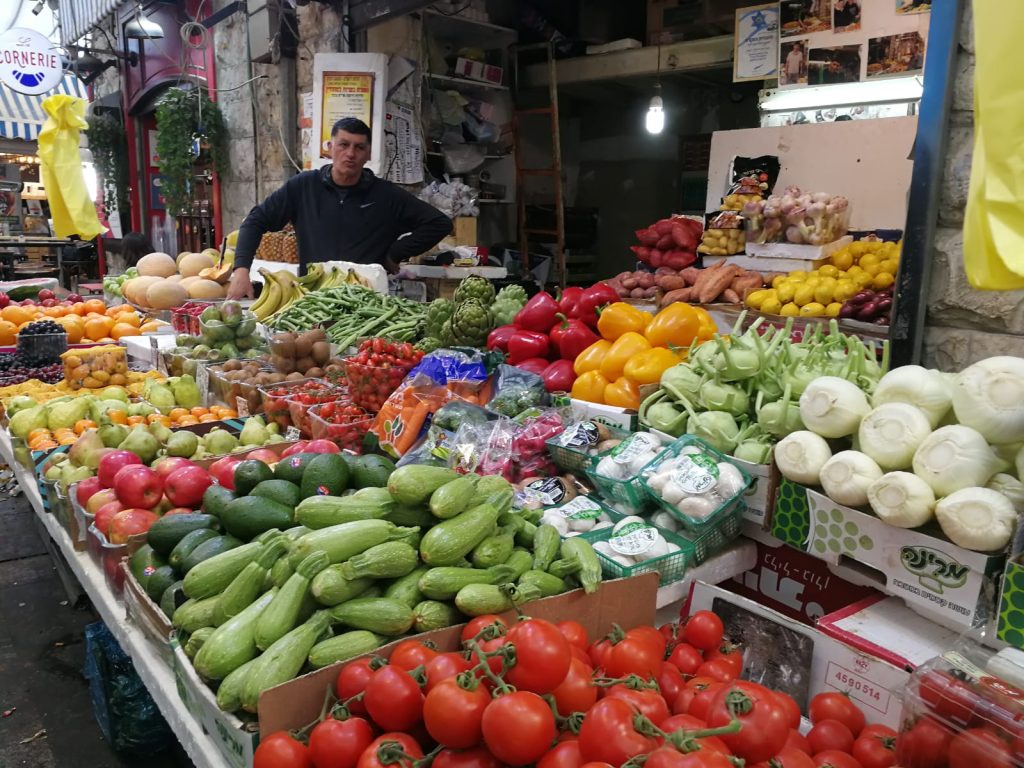
Take the historic Machne Yehuda market in Jerusalem for example. There, you can learn no less about the history of Jerusalem and of Israel in general than you can learn in the nearby Old City, but you learn it differently. Rather than with your eyes and ears and intellect alone, you get to experience the incredible history of this most famous of all places on our Planet also through your nose, your taste buds, and even your sense of touch. From the Ottoman Turks to the Jews who have only recently arrived from Russia and Eastern Europe, from the Horn of Africa to the Caucuses, from Yemen to South America, all the flavors, aromas, colors, and textures are there for you to explore.
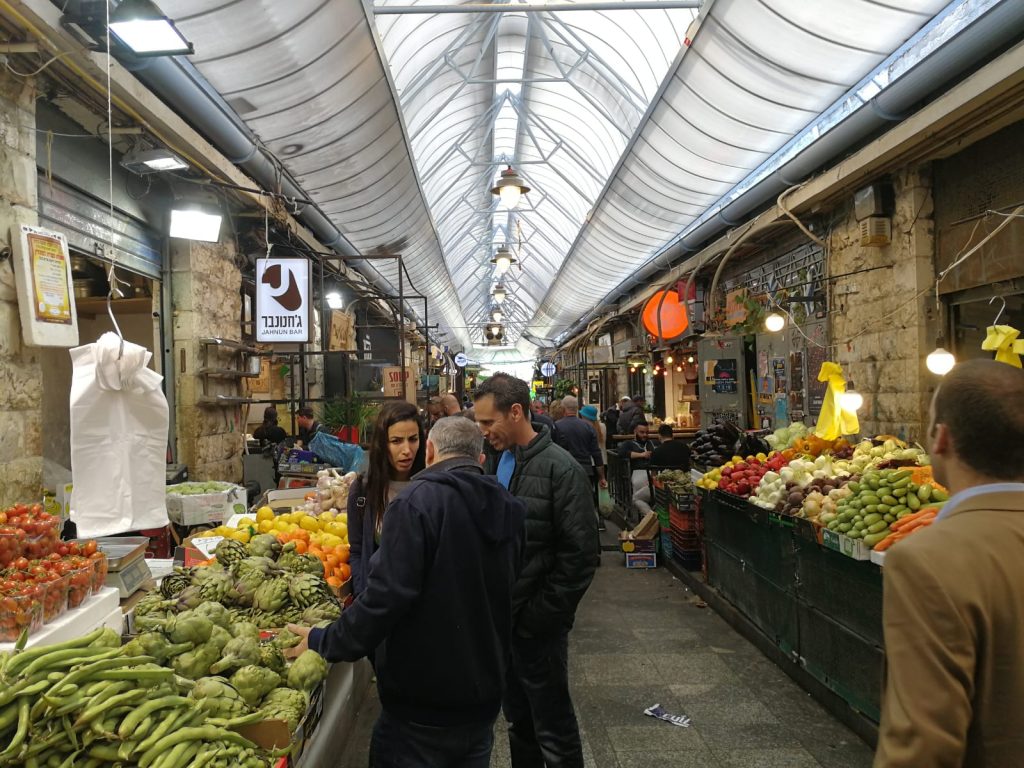
This experience is so rich that it can be overwhelming and even scary to folks who don’t live the life of the shuk every single day. Your senses, from smell to hearing, are immediately overloaded and you may not know whether to take the plunge and start exploring. Where do I begin, you ask yourself. Luckily, a quartet of Israeli entrepreneurs have found the answer. Yalla Basta, meaning something like “let’s go to the shuk!” is the brainchild of two couples: Reuven and Mor Filo and Michael and Yael Weiss. The Filo’s and the Weiss’s want to be your guides to the shuks in Israel. Virtual or real – that’s your choice.
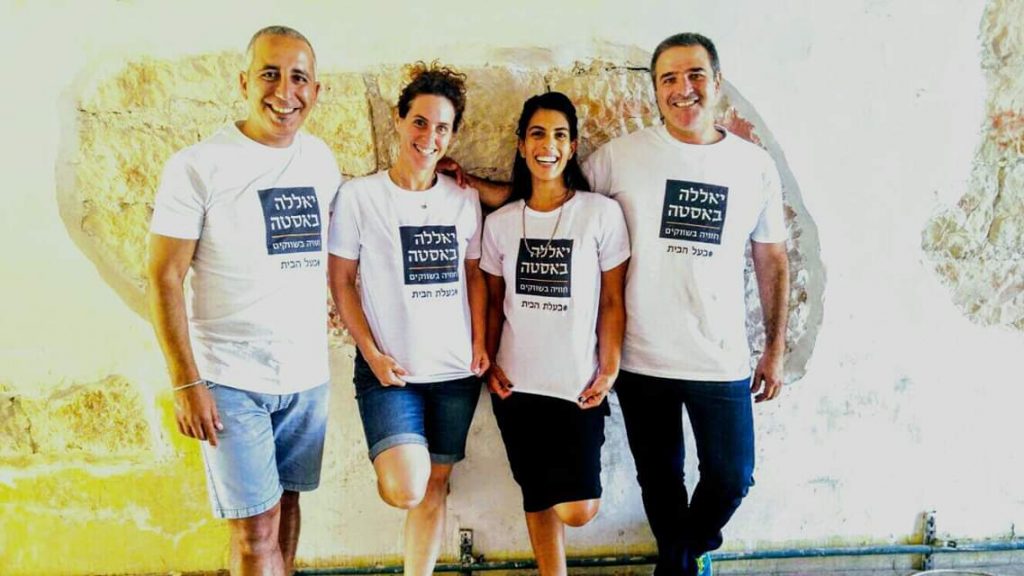
Yalla Basta offers “bite cards” to almost every Israeli shuk, but their true passion and the place where it all began is the iconic Machne Yehuda. You can purchase a bite card online through their app or on their website and pick up a physical copy at the shuk itself. Then it’s up to you. You may want to join a scheduled guided your and get all the background information you could ever want, or you can use the bite card as a map to meander from vendor to vendor and upon presenting it you will get to try the most iconic dish that the vendor has to offer.
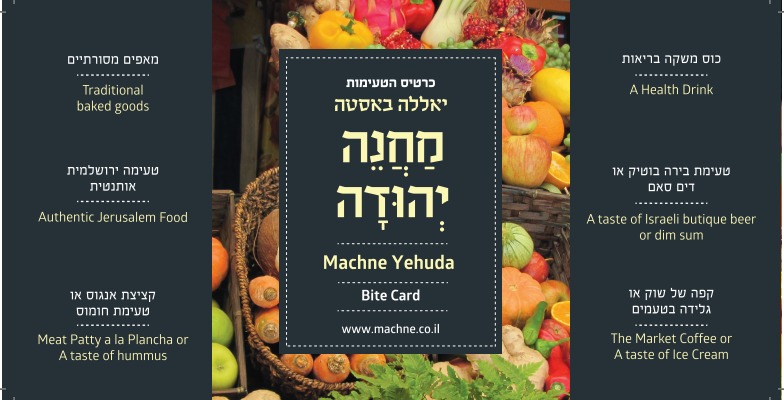
The fact that the service Yalla Basta offers started off as an offering only in Hebrew and only to Israelis, tells me that it is not a tourist trap. Israelis would simply not stand for it; they, more than anyone, know when they are being taken advantage of. Bite cards are now available in English and are a terrific way for visitors to take in that most authentic facet of Israeli life: its bustling markets. The markets in Israel is where the magic happens; it is where politicians are made or destroyed, where the blending of all the flavors takes place in a way that brings them together without sacrificing any of their uniqueness. The people behind Yalla Basta are very knowledgeable about Israeli cuisine and its complex roots and traditions. It is difficult to imagine having more fitting guides for a multi-sensory experience of a lifetime.


